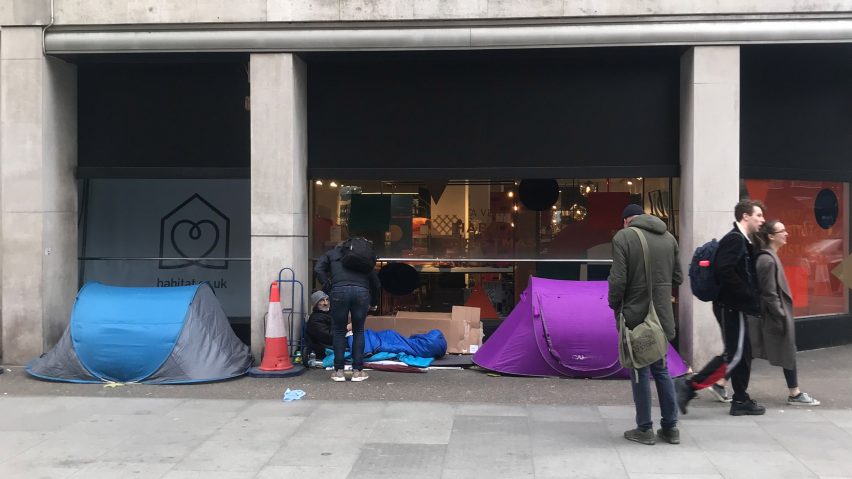
UK government to launch network of homeless hubs
Eleven cities around the UK will get Somewhere Safe to Stay centres to help rough sleepers as part of a government scheme to support vulnerable people.
Minister for housing James Brokenshire announced £4.8 million for the new network of hubs, as part of the government's £100 million Rough Sleeping Strategy.
"No one should ever have to face a night on the streets, and as a government we are taking steps to ensure people are never faced with this as their only option," said Brokenshire.
"These are vulnerable people, who may be dealing with complex mental health problems or addictions and require specialist help to tackle these issues and turn their lives around."
Hubs will offer specialist support
The new Somewhere Safe to Stay hubs will offer support on issues such as mental health and substance misuse to rough sleepers and those at risk of sleeping rough, providing shelter in the short term as their needs are assessed.
Brighton & Hove, Bristol, Cheshire West & Chester, Derby, Gloucestershire, Lincoln, Liverpool, Medway, Nottingham City, Preston and West London are the 11 areas that will open a Somewhere Safe to Stay centre in early 2019.
Bristol will have a 24-hour rapid assessment centre with capacity for women or more vulnerable people, and the west London hub will have spaces for women and rooms for individuals deemed to be particularly vulnerable.
Outreach workers will be able to use the hubs to make contact with those at risk or already sleeping on the streets, and help them with the kinds of issues that can lead to homelessness such as relationship breakdowns, addiction or financial problems.
Rough sleeping on the rise across UK
The ministry for housing estimates that 6,000 people can be helped by the new centres by 2020. They will be part of the new Rapid Rehousing Pathway and London's current No Second Night Out programme, a scheme that aims to help stop people from sleeping rough repeatedly.
The latest government statistics on homelessness, released in January 2018, showed a 15 per cent increase in the number of people sleeping rough across the UK in just one year.
Earlier this year the British Medical Journal published a report blaming government austerity policies for the soaring rate of homelessness in the UK.
Brokenshire has hit back at the suggestion Conservative policies are the reason, suggesting the increase in rough sleeping is due to family breakdown, addiction, and vulnerable LGBTQ youths being thrown out of their homes.
London accounted for almost a quarter of rough sleepers, and the capital is struggling to provide adequate services. Last week Dezeen interviewed two people sleeping on the streets of central London about their experiences.
Main photograph is by Dezeen Studio.